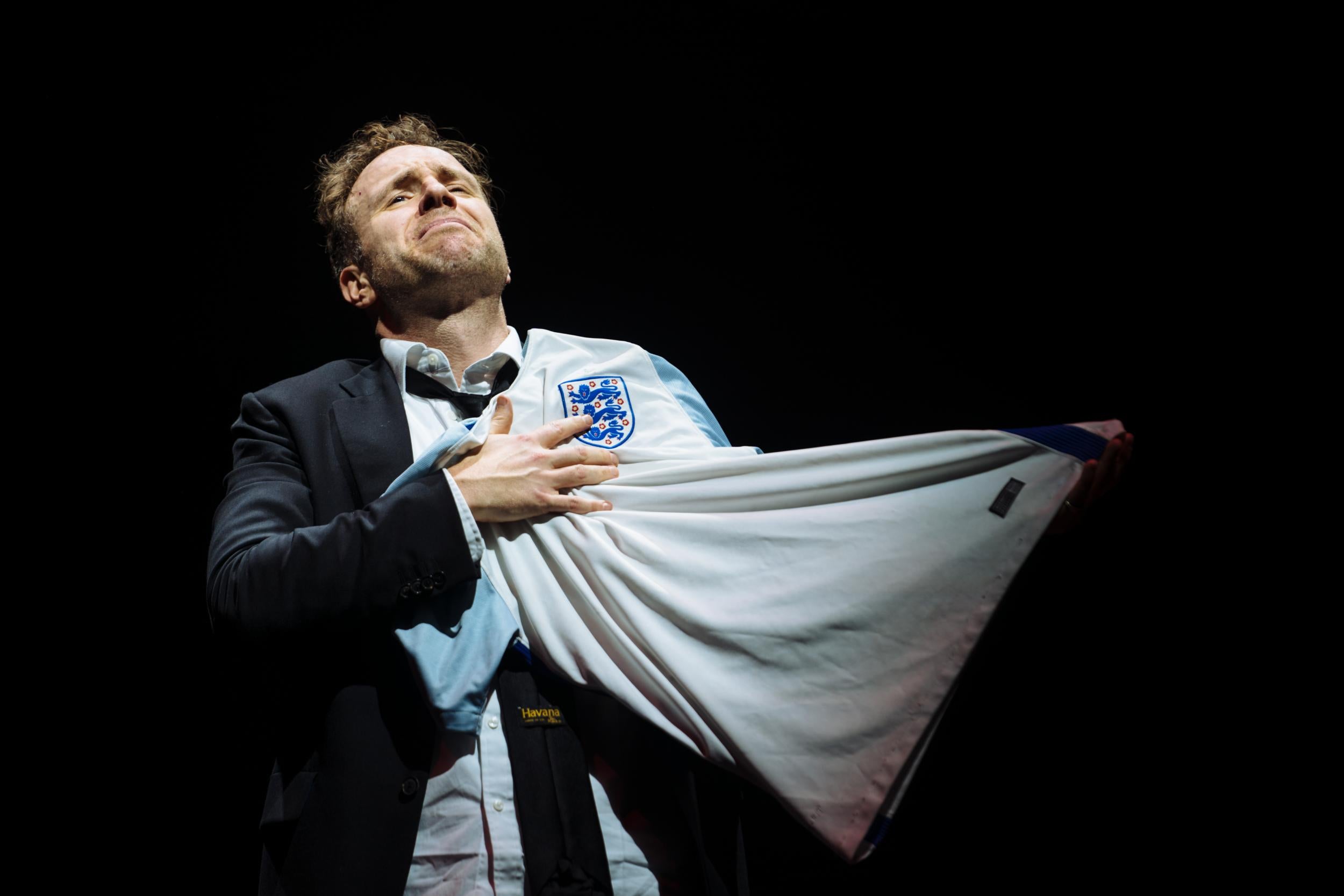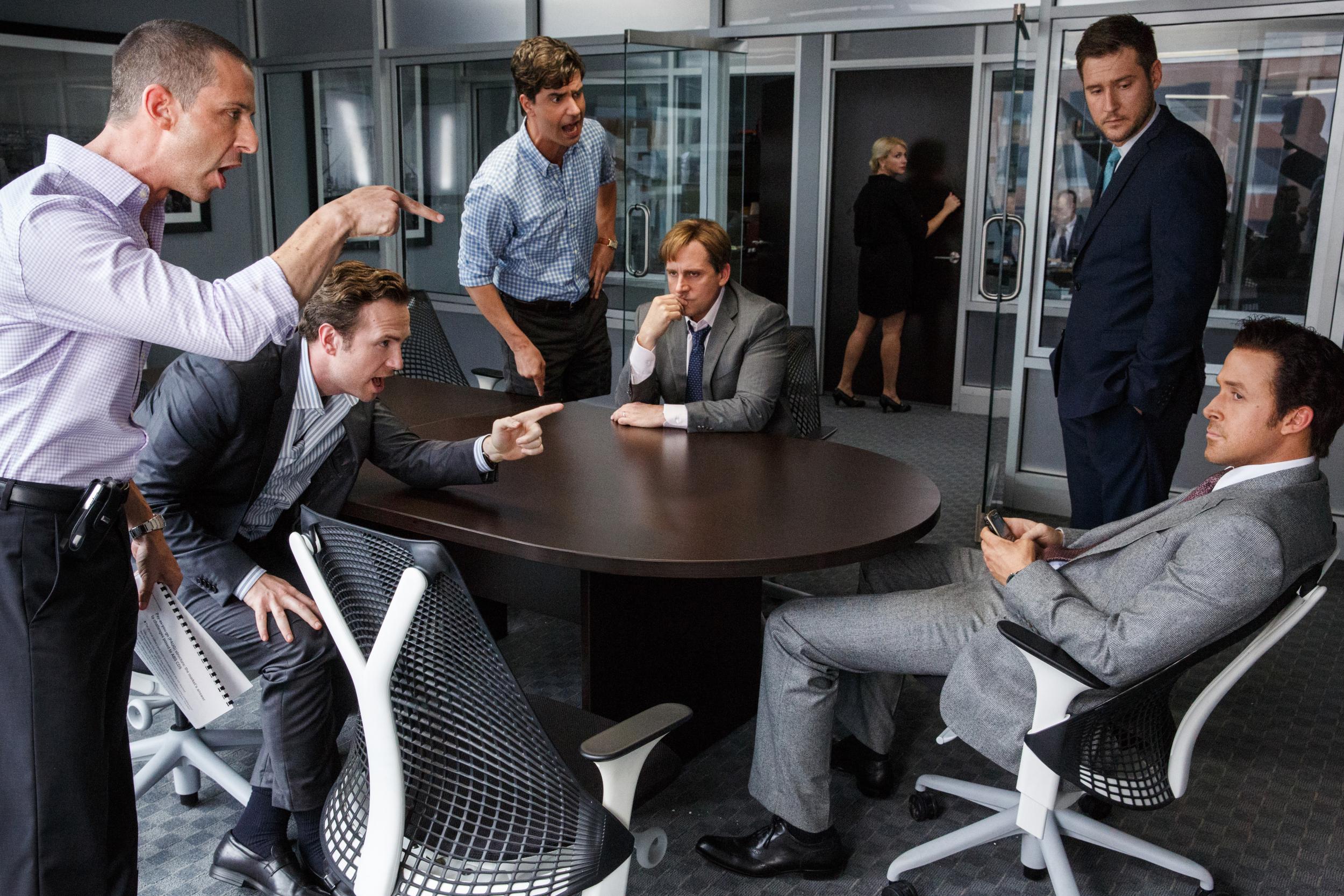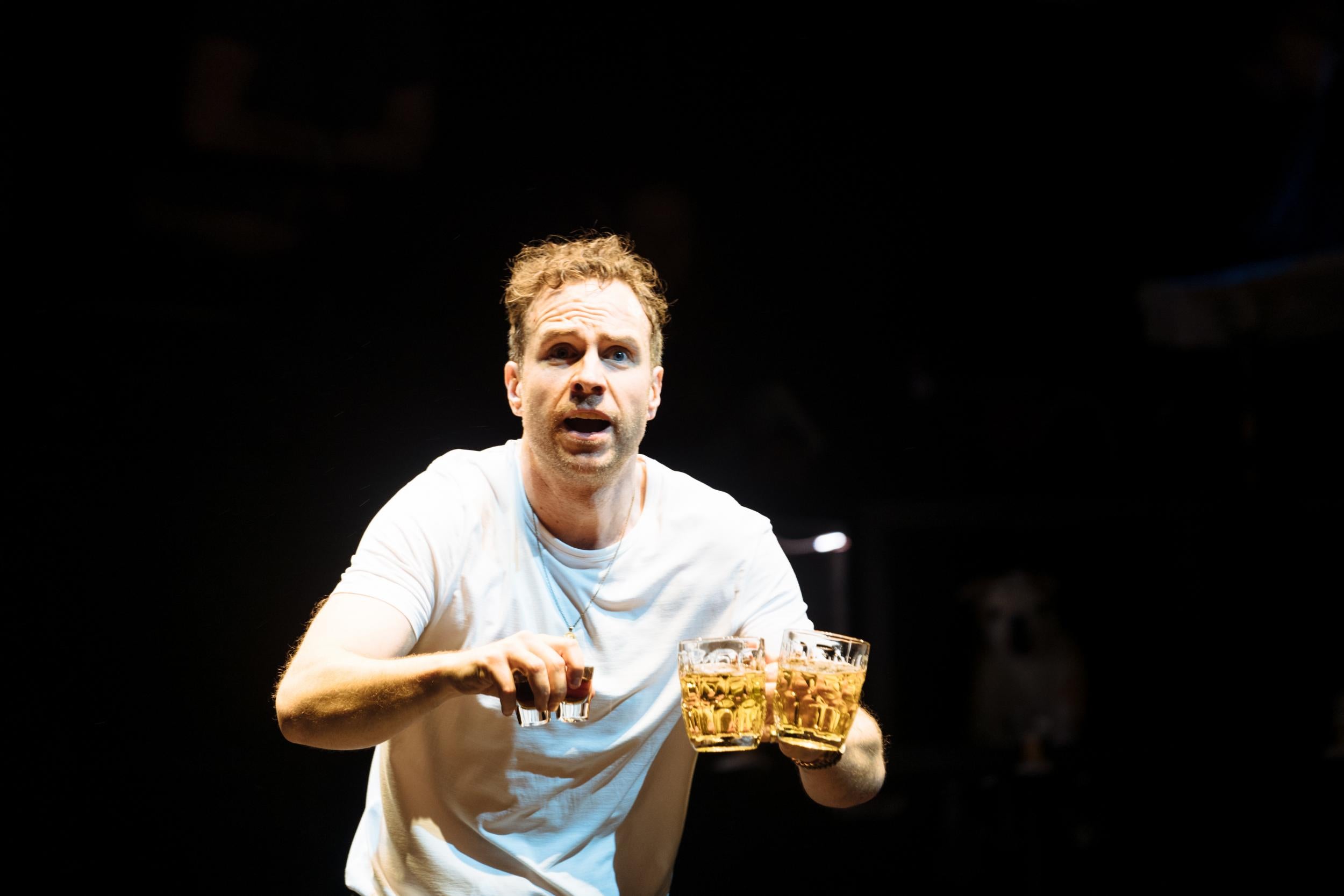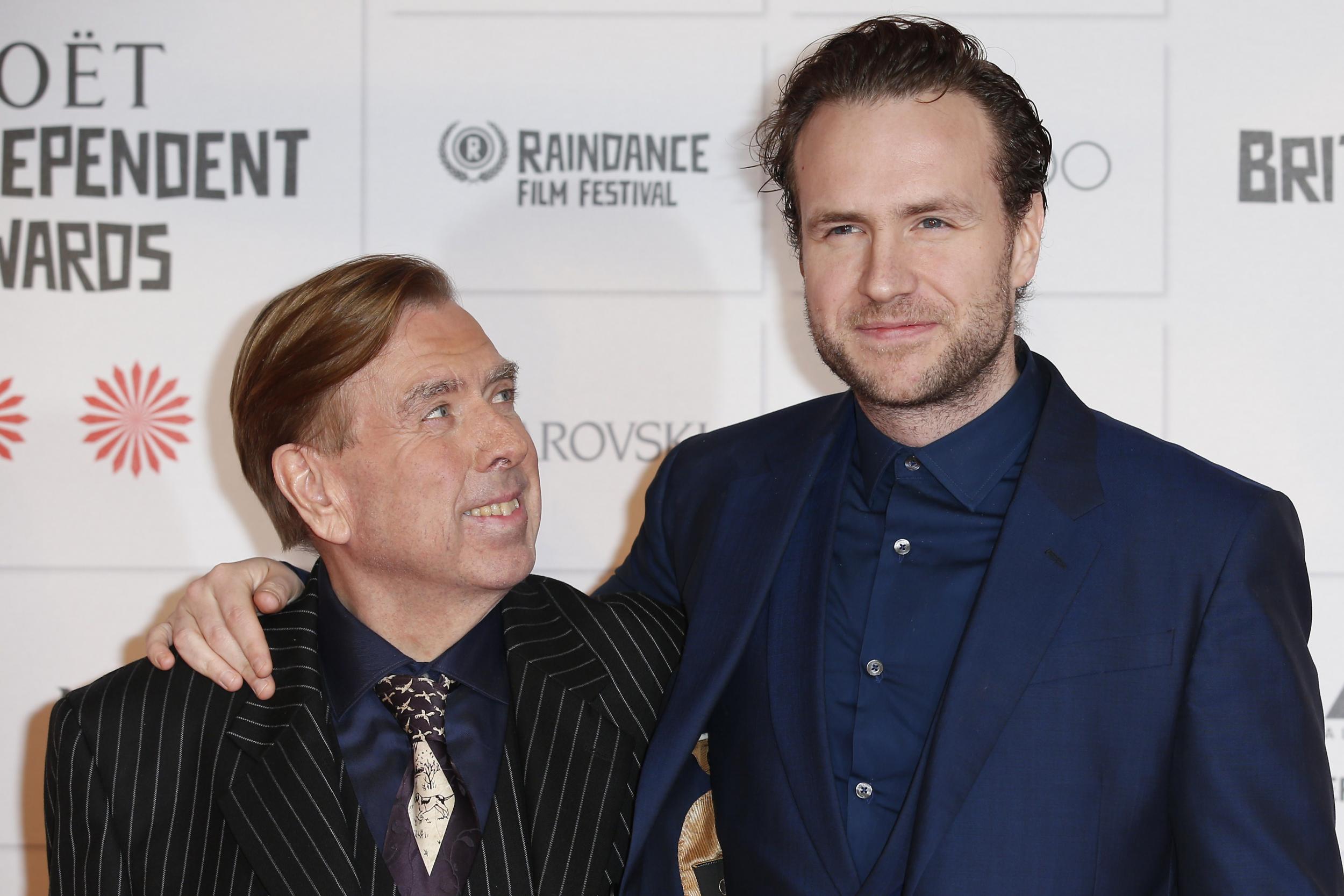Rafe Spall on Death of England: ‘This play is an attempt to delve into the white mentality’
The stage and screen actor is currently starring in a mighty monologue at The National Theatre. He talks to Paul Taylor about race, self-doubt and the weight of expectation that comes from having a famous father

Rafe Spall found himself chattered about in the gossip columns a fortnight back. The popular and hugely talented actor – acclaimed equally for his stage and screen performances – had toppled offstage at the National Theatre during an early preview of Death of England.
To be fair, anyone would struggle to stay put on this particular stage – it is in the shape of a large red cross of St George that forks out over the whole space. For a manic hour and 40 minutes, Spall has to race around, patrolling it alone. My spies tell me that he saved the situation with such lightning dispatch that some members of the audience might not have registered how close the event came to careering off course. Even those sitting in the well of the auditorium, right where they were at risk of being spoken to by the charming but dangerously volatile protagonist of this transfixing one-man play, remained oblivious.
All the same, coming on top of the huge demands that Death of England makes of its cast of one, the upset seems to have thrown Spall in more ways than one. For a short while, it looked as if this interview may have had to be shelved. But there are no discernible scars – physical or psychological – when he materialises in friendly, forthright fashion for our slightly postponed encounter.
Written specially for him by Roy Williams and the production’s director Clint Dyer, the play is a mighty monologue that charts the explosive nervous collapse and shell-shocked-but-wiser reintegration of Michael, a white, working-class Essex lad. He has raw, conflicted feelings about who he is and what he is supposed to be fit for in multicultural Brexit Britain. “I don’t usually feel nerves but, without any faux humility, I have to say that there have been times when I wondered whether I can pull this off,” says Spall, 36. “It’s such an unusual play. Part of it is like a tone poem, some of it is a bit soap opera, then there are bits where you say things that are potentially offensive.”
One of the sources of Spall’s palpable charm as an actor is his persistent air of incredulity that he has turned out so good looking, given the hassles of the past with avoirdupois. The Spalls, Rafe and his actor father Timothy, have long been upfront about shared difficulties in controlling their weight. Spall went public with how he went on a gruelling diet to get down from a character actor’s build to the more toned torso of a romantic lead when he was set to star in the 2013 romcom I Give It a Year.
We live in a culture where size has become weaponised in toxically trivial, money-minded ways – tabloids obsess over the “stunning transformation” of any Hollywood celebrity who loses weight. In our era (as opposed to the one Spall’s father came through), particularly if you are an actor, anxiety about weight is never put aside. Even if it’s a loveliness of disposition rather than any lumpen phwoar factor that gets communicated in Spall’s performances. He has measured up to the finest and fittest in both film and theatre. In the movie The Big Short, he rubs shoulders with Brad Pitt, Ryan Gosling and Christian Bale. In a recent Broadway revival of Harold Pinter’s Betrayal, as the two-timing best friend, Jerry, his character broke up the art-reflecting-life marriage of Daniel Craig and Rachel Weisz.

In Death of England, he is on his own. After seeing the production the night after our conversation, I am left surprised that Spall can even sit upright after that marathon tour de force, let alone be so good-humoured. Rather than exhaustion, he exudes the on-his-toes satisfaction of an actor who knows that he is being tested to the utmost in a piece that is well worth the effort. The actor warmly agrees with my comment that Roy Williams is one of the most natural playwrights in the business. “His dialogue sits in the mouth beautifully,” he remarks.
And it gives rise to a remarkable feat of acting. The synaptic speed with which Spall can switch tack in exploring the character’s driven, mercurial mentality is breathtaking. A gummy grin becomes, in a harrowing trice, a mouth gaping with naked grief as though Michael has turned into an abject gargoyle of himself.
Spall welcomes my comment that the monologue form – he does a whole hubbub of voices, which takes him into the assuming of black accents and tones – might be accused of turning the clock backwards diversity-wise. Spall, who went to a south London school where he was one of only five white students, maintains that the piece is about the “confusion of bigotry” in contemporary Britain.
This confusion comes to a head when the speaker’s father – a full-throated racist who ran a florist stall – dies during England’s last match in the 2018 World Cup, leaving Michael in torment about the kind of legacy that he has been left. His best friend was Delroy, a black fellow pupil. On the principle that there is a “time and place” for everything, Michael’s father would hire a van and cross the river to take the family to see Delroy in a boxing match. It is the same father who speaks through the bereaved Michael when he tells his friend: “You may act like us; you may sound like us, but you will never be one of us.”

Spall counters any misgivings about the monologue form with the consideration that the two authors are black and that the play is “an attempt to delve into the kind of white mentality that may well have victimised them”.
There’s a sanity and wry wisdom in Spall. So when I ask him about the case of racism and Meghan Markle, a patron of the National Theatre, he replies that people who have been on the receiving end of prejudice need to be deferred to as the experts on their experience. “I respect the views of ethnic-minority commentators and intellectuals on the media’s treatment of the princess.” He does hope that Markle will have time to see a performance of The Death of England.
This isn’t the first time Spall has been grilled about race. I mention a YouTube clip of him on Good Morning Britain fielding questions about diversity and the apparent prejudice in favour of white artists. I marvel that he managed to keep down his breakfast opposite Piers Morgan, a very smart operator, but not a person often on what fully paid-up liberals like Spall and I would necessarily regard as the right side of the argument. He flashes a gummy grin. “You have to remember how terribly charming these people are,” he says. “Piers is crazy about cricket, so am I. Before I knew where I was, I was filming an app for the phone of one of his sons.”
Spall is not one for politically correct utterances for their own sake. “I’m not like those politicians who let it be known that they could never be friends with a member of the opposition,” he says.

Spall’s anxieties about whether his performance would be equal to the play’s challenge are being allayed by the rave reviews he is now receiving. As his portrayal of Michael takes us through the character’s youth and up to the angry, tortured meltdown of his shattered half septic, half mad-with-grief “eulogy” in the crematorium, Spall leaves you in no doubt that he is a great actor, following less conflictedly in his real-life father’s footsteps.
Spall Senior discovered a desire to act when he was given the part of the Cowardly Lion in a school production of The Wizard of Oz. Spall knew definitively that he had inherited the acting bug in similar circumstances, albeit complicated by romance and sex. He was cast as Fat Sam in a production of Bugsy Malone, the spoof gangster musical that is famously played by an all-child company. The next day, one of his female colleagues “asked me straight up if I would like to be her boyfriend”. The rest is history.
The weight that really interests me in relation to Spall and his father is the weight of expectation. When Timothy famously won the Bancroft Medal at Rada (given to the student perceived as the year’s most promising talent), he did so without the advantage-cum-burden of having had Timothy Spall for a father. He kept the medal in the sitting room. Spall lovingly lines out, in the air, the gold frame in which it sat. “He is so proud of it,” he says with a smile of affectionate amusement.
One thing that emerges is my misapprehension about what it must be like to have an actor as a father. For various reasons, I wished when I was a child that my widower-father could transform into a whole repertory company of fictional characters. Spall interjects that this is not how it feels. Timothy may have been a famous face on TV and from his appearances at the National Theatre, “but he was always there for us as Tim, in his own right”. It is with deep warmth that he talks about his father. Spall recalls how “just watching him shout at the television was a master class in acting. He taught me that the important things are kindness, hard work and giving an honest performance.”
Spall has three small children with his wife, the actor Elize du Toit. They are too young to attend Death of England but perhaps the play will stoke the paternal pride of Timothy. They first acted together 13 years ago, playing father and son in a television adaptation of A Room With a View. Fingers crossed that Spall’s turn in Death of England will fuel the fires of creative emulation and ensure that it won’t be as long before we see them together again.
The Death of England is playing until 7 March
Join our commenting forum
Join thought-provoking conversations, follow other Independent readers and see their replies
Comments